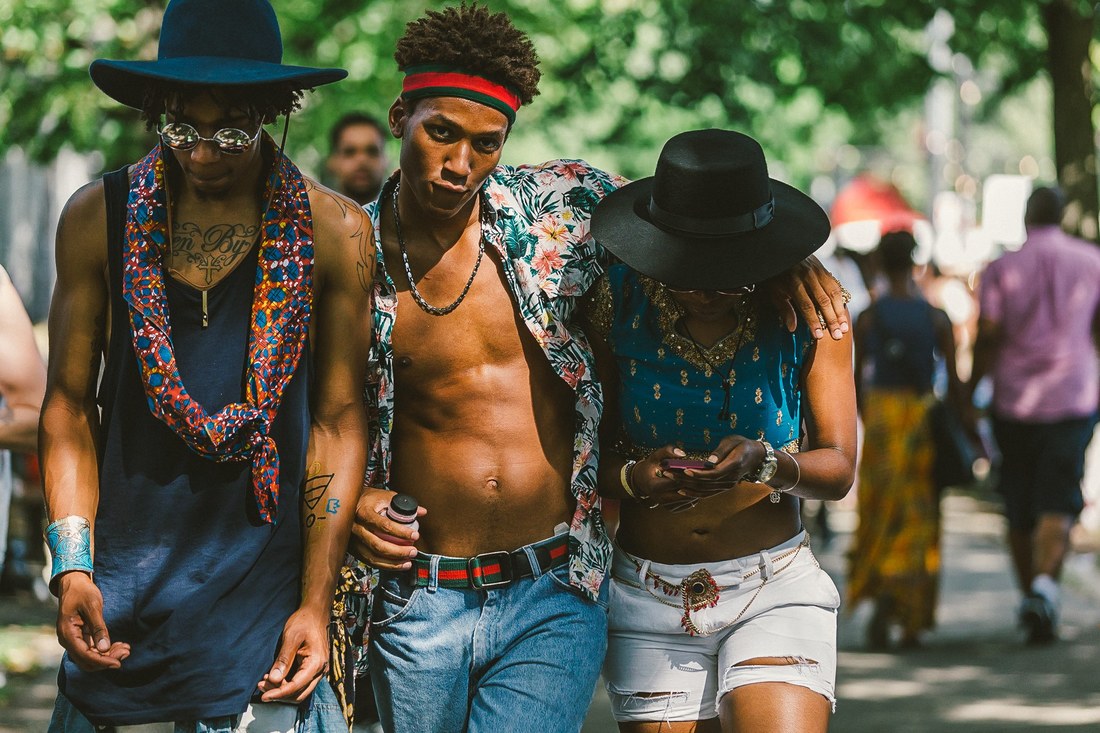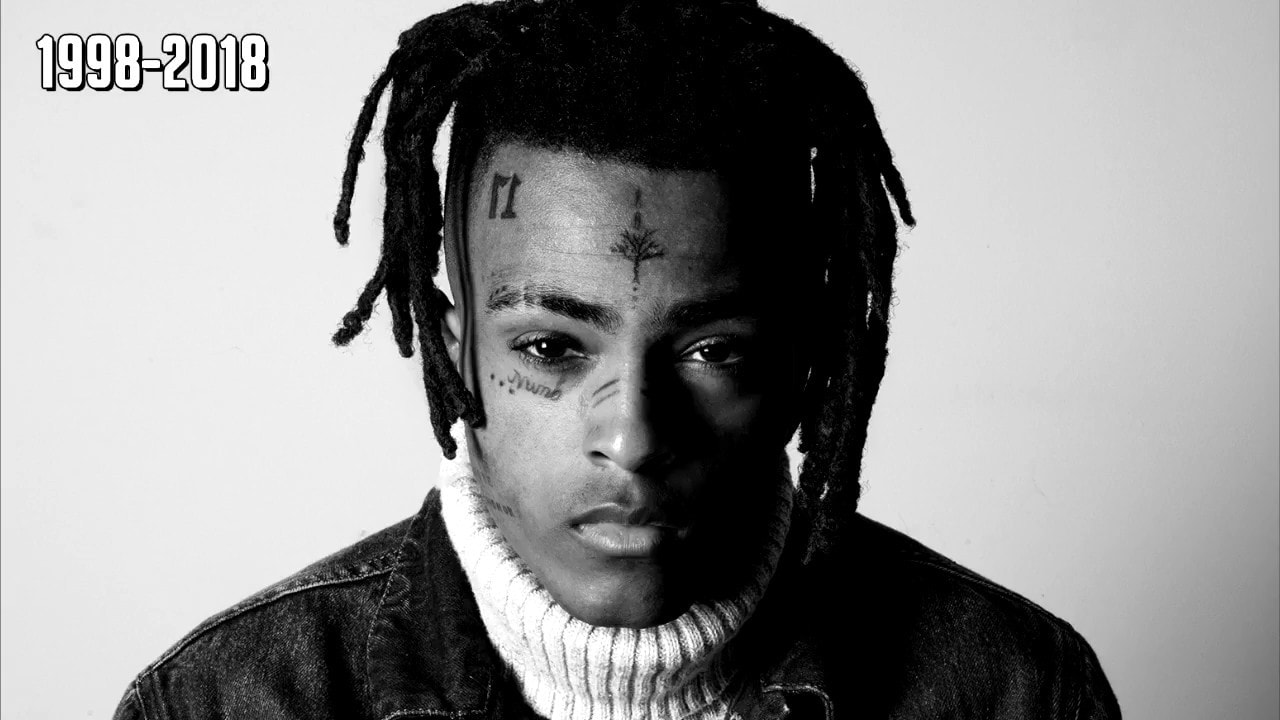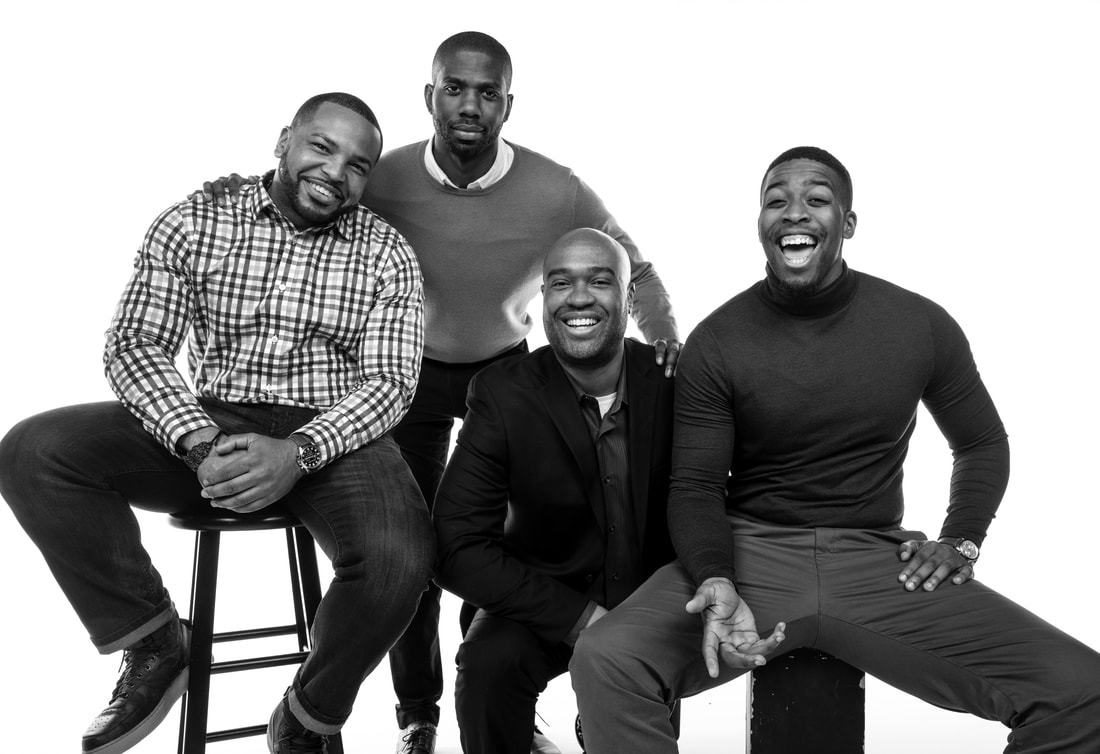|
ATLANTA, Ga. — There are roughly 1.6 million black men currently living in Georgia and research indicates 67,000 of them are at risk of not being counted in the 2020 census, according to the non-profit Fair Count. This could cost their communities approximately $154 million a year in funding for the next ten years. That’s why former Georgia Democratic Leader Stacey Abrams is taking on a new challenge, through Fair Count, of ensuring hard-to-count populations that include blacks, Hispanics, renters and young men are properly counted during the 2020 U.S. Census.
It’s something Abrams says President Trump and Republicans don’t want to see happen. “I think that the Trump administration has intentionally defunded the census and created confusion,” said Abrams. “Because that administration does not respect the whole of what makes America, America. … [That’s why] my responsibility, when it comes to Fair Count, is to ensure that the Trump administration is not allowed to erase people from our state, and not allowed to diminish the importance of Black Men in our communities.” The Black Men Count initiative under Fair Count is a priority of the organization. It was launched in May with former U.S. Attorney General Eric Holder and other black male leaders from across the state of Georgia coming together to acknowledge the challenges of having the proper figures for black male populations. “We want to make sure that history doesn’t repeat itself and that black men aren’t under-counted,” said Holder. “Because there’s an effort out there to try to keep us from being counted.” The census directs billions of dollars in federal funding to states and guides reapportionment and redistricting for the next decade. Proper headcount means communities get the appropriate funding they deserve for the resources they need. Based on the latest census estimates, roughly 20 percent of Georgians live in hard-to-count neighborhoods. “We're hoping to mobilize black men at the beginning of the year, when the census is actually active and engage them to make sure that they actually turn out and are counted,” said Ed Reed, a Fair Count community organizer who’s responsible for staffing Black Men Count. “I think as much as we can do to educate people the direct impacts in their neighborhoods, in their classroom, in their families, in their homes, I think that will go a long way.” In the 2010 Census, the black population had the highest undercount rate of any racial and ethnic group. Additionally, black men typically experience higher undercount rates because the family structure varies from family to family. But this doesn’t mean each person cannot be accounted for says Ryan Smith, co-founder and CEO of the Gathering Spot. “Representation matters. Young people simply don't see their voice in this process,” said Smith. “And so this is an opportunity to have a much larger conversation about telling folks that they do matter, and that ultimately that when we can get them counted, the resources ... will have an impact in their lives.”
0 Comments
DES MOINES, Iowa — In an era in which religion and politics have frequently been used to create division and dissension, the pastor of a historic church is instead trying to utilize them for higher purposes.
“Religion and politics should be partners for humanity,” says Rev. Jonathan Whitfield, senior pastor of the Corinthian Baptist Church in Des Moines. Founded in 1898, Rev. Whitfield’s church is one of the oldest historically African-American churches in the city. And since its inception, Whitfield says, Corinthian has “brought forth a very consistent foundational spirit of inspiration of worship to God.” That was the message that presidential candidate Kamala Harris heard — and echoed — when she attended services there last Sunday. Harris visited the church as part of a five-day, 17-stop campaign swing. She is not underestimating the importance of Iowa, which will hold the first caucus in the nation on Feb. 3, and hopes to regain the momentum she enjoyed after a strong showing in the early round of debates. Democratic presidential candidate U.S. Sen. Kamala Harris (D-CA) speaks to parishioners at Corinthian Baptist Church on August 11, 2019 in Des Moines, Iowa. Democratic presidential candidate U.S. Sen. Kamala Harris (D-CA) speaks to parishioners at Corinthian Baptist Church on August 11, 2019 in Des Moines, Iowa. Harris spoke from a lectern about the importance of the church in her life, and in the life of the country. “It is the church where we go when we need upliftment,” she said to the congregation of about 200. “It is the church where we go when times like these test our faith and we need to be reminded of all of Christ’s teachings and what Jesus has taught us about the good in people.”
Former President Barack Obama and President Trump have divided America, according to popular radio host Charlamagne Tha God. Charlamagne, the lead voice of “The Breakfast Club,” a nationally syndicated morning radio show originating in New York City, says the reason you hear an increase of hate-filled stories and see more overt racism today is a direct result of the country’s current and immediate past president.
“Donald Trump has a lot to do with that over the past couple years, but I also think Barack had a lot to do with that too,” Charlamagne said in a sit-down interview with Yahoo News’ Marquise Francis. “We fail to realize when you’re on the other side. If you voted for Barack you were probably happy, so you were probably in your echo chamber and you were with your people who loved Barack too. But you didn’t see the other side of America who was extremely pissed off that it was a black man in the White House.” The statistics support Charlamagne’s theory. Counties that hosted a 2016 Trump rally saw a 226% increase in hate crimes, according to a new Washington Post study. Charlamagne admits that the motivation behind Trump and Obama are vastly different, adding that Trump is dividing the country intentionally, while Obama did so unintentionally. Charlamagne, author of a 2018 best-selling book on anxiety titled “Shook One: Anxiety Playing Tricks on Me”, continued that he has parental anxiety in raising his two daughters in the current climate. “I have a lot of fears and concerns and I don’t even know if they’re justified,” he said. “My daughter is in the fifth grade right now, and she’s one of the only minorities in her grade, so I often wonder if she’s around enough of her own people and I wonder what those kids are being taught at home.” Radio host Charlamagne tha God of “The Breakfast Club” in New York City discusses his parental anxiety as he raises three daughters in a different environment than he grew up and how social media plays a major role. He adds that PTSD for Black Americans is real. "Seeing people get shot at is not normal...that's not culture, that's pain. We've got to heal." He went on to tell an anecdote of a recent encounter he had with an elementary school student while dropping off his daughter at her school for cheerleading practice. The student initially called Charlamagne a criminal because of the way he looked, but after the two shook hands, the child’s attitude became more positive. Still, the initial assessment struck Charlamagne as ominous, evidence of racist stereotypes being foisted on young and impressionable minds.
The film adaptation of “If Beale Street Could Talk” won an Oscar this week, with Regina King earning the Best Supporting Actress award. The film, directed by Barry Jenkins, brought to life a novel by the acclaimed author and social critic James Baldwin, who memorialized love and injustice in 1970s New York. It’s a love story about Tish and Fonny, a young couple from Harlem, who forge an unbreakable bond in the face of an unforgiving and racially biased world. “If Beale Street Could Talk” tells the story of New York through tough times — representing many of the same issues black people continue to face today.
Baldwin has long been synonymous with black pride and New York City. Born in Harlem in 1924, he published “If Beale Street Could Talk” some 50 years later, a time when the city was reeling from social and economic turmoil. His writing helped others understand the plight of black Americans during this time period, and it also expressed some of own struggles of living as a gay and bisexual black man when it was far less accepted. “The responsibility of a writer is to excavate the experience of the people who produced him,” Baldwin once said in a 1971 conversation with fellow writer and activist Nikki Giovanni. Baldwin was New York and New York was Baldwin. Through “Beale Street” Baldwin encouraged black people to fight for equality. He also showed people how to love, how to dream and how to believe. More than four decades later, the legacy of this tale is still relevant. “Uncle Jimmy was able to articulate some of the things people are frustrated with right now,” Trevor Baldwin, nephew of James Baldwin, said. “I think we all need someone who existed before us who we identified with. And Uncle Jimmy is famous for saying, when asked [about] being born black, poor and gay, he said he hit the jackpot.” It was important for the filmmakers to capture the spirit of the novel by including places and locations that brought an older Harlem to life again. “In the book, Harlem is their place of hope,” Samson Jacobson, the locations manager for the film said. “It’s this big expansive universe where anything is possible and they’re the safest in that world.” Showman’s Jazz Club was one of the bars used for a scene in the movie. Established in 1942 adjacent to the famed Apollo theater, it became a place where musicians took a break from performing on the big stage to play for people that could not get into the sold-out shows. “We keep up the tradition that makes sure we are Harlem musicians,” bar manager Mona Lopez said. Actor Ebony Obsidian, who played Fonny’s sister Adrianne Hunt in “Beale Street,” said, “We have so much beautiful black content today because people feel represented. That’s the world that they see.” She added that Baldwin was able to properly convey the reality of the world around him. “Camaraderie and connection is a huge part of how New York works. … That’s the world that Baldwin lived in.”
I sat down with outspoken rapper Killer Mike the week of the Democratic debates to talk about his thoughts on 2020, where the country is and where it needs to go.
‘I pray the Republicans have a huge wave in November’: Trump supporters rally in Minnesota10/7/2018
“Together we will make America wealthy again, we will make America strong again, we will make America safe again,” President Trump said Thursday evening.
A capacity crowd of 10,000 people packed the Mayo Civic Center in Rochester, Minn., for Trump’s “Make America Great Again” rally. Another 1,500 people, who waited hours in line, could not get into the convention center, but chose to stick around and watch outside on giant screens. It’s Trump’s first visit to the southern Minnesota city since he started campaigning for president in 2015. Supporters both old and young donned red MAGA hats, women proudly hoisted “Women for Trump” signs, and the American flag in its many iterations was visible in all corners of the convention center. The president walked out to thunderous applause and raucous chants of, “U-S-A, U-S-A.” Trump used his speech to celebrate his administration’s changes to the North American Free Trade Agreement. He also reiterated his support for his Supreme Court nominee, Brett Kavanaugh, and drove home his belief that National Football League players should stand for the anthem. But the real reason why the president came to rural Minnesota was to drum up excitement for local conservative politicians ahead of the midterm elections. “I need your vote. I need your support to stop radical Democrats and to elect proud Minnesota Republicans,” Trump said. He added that electing Democrats would create “a nightmare of gridlock, chaos and, frankly, crime.” Trump supporters held on to each of the president’s words, pumping their fists when he touted his successes and jeering with him as he ridiculed the media. Many in attendance left the event believing what they believed when they arrived – that the United States is headed in the right direction. “I pray the Republicans have a huge wave in November so President Trump gets the support he needs to make America, to keep America great,” said Kathy Tyler of Eden Prairie, Minn. One local woman who recently celebrated her 17th birthday admitted that the excitement around Trump was great for the region, but that she couldn’t ignore the division she has experienced. “I never thought there was division in Rochester, because we’re so big and so heavily populated,” she said. “Already, I’ve seen the division and some of the looks, like: ‘You’re less than us.’” She's always been there. She's paid the mortgage, attended my basketball and football games, brought home the most money and found time to make sure my sister and I have done well in school and paid attention during church service. She's been the world's best mother, wife, sister and daughter for as long as she could do each role. My mom is a superwoman and I've always known this to be true, but I what I didn't know is that black women all over the world share these experiences as superheroes. Black women have been the foundation of the black family since the beginning of time, and yet they do not get the credit, recognition or reciprocation that they deserve. As black men, we've got work to do, NOW.
A 2014 blog post from OkayCupid founder Christian Ruddler spoke about race and attraction. In this post, Rudder used data to show that black women are the least desired race among men looking to date online. I've been having a lot of conversations the past couple years regarding race, dating and identity and one thing that has become paramount for black women is the idea that they feel less desired by men overall, and most particularly by black men. To this point, they defend black men in the news, support them in the household and more and yet they feel black men do not return that loyalty. I struggled with understanding this idea at first. I can say that I have never went out of my way to discriminate against black women, but when I think about some of my peers, I can not be as confident. I have been in spaces where other black men tear down black women and uplift other races. I allowed things to be said when I could have and should have spoken up. Now that I know better I am proactive in speaking up and uplifting black women. They understand our plight as best as they can and support us. It's time we support them. As black men, we have black mothers, sisters and aunties. Black women are the electricity of the family. It' s on us to support them the way that they support us. Instead of putting down a darker hue of a woman, uplift her melanin. Instead of blasting her for her loud value, applaud her passion. Instead of having distaste for her curls, embrace her natural beauty. When all is said and done we are all that we have. Men and women were put on this earth to co-exist and support one another and make each other better. As black men, we have been falling short, but we can't go back and change this. We can move forward and be better today than we were yesterday.
Rapper XXXTentacion was shot and killed in Deerfield Beach, Florida June 19th as he exited a car dealership. He was gunned down by two men who stole a Louis Vuitton bag and fled in a black truck. The news was shocking. The visuals on social media of the rapper’s limp body were nauseating. Celebrities and fans alike poured out their condolences and emotions online and elsewhere. So many questions went through my head and little answers. As of now, there still is no word on the shooter, or shooters. The only thing we do know is 20-year-old Jahseh Onfroy is gone and his future was cut short.
XXXTentacion’s short life is a complicated one. He was raised as a single child by his grandmother and dealt with bouts of depression. He was awaiting trial on charges that he allegedly beat his pregnant girlfriend. On several other occasions, XXXTentacion is accused of assaulting and choking girlfriends of his and threatening them. In May, Apple and Spotify removed the rapper’s music from their curated playlists for their anti-hate policies, only to add them back after backlash. Despite all of this, as serious as his transgressions were, XXXTentacion did not deserve to die. Without a doubt, this young man from Florida was troubled, but there were signs that he was moving toward a happier and peaceful place. He made music for a lot of people dealing with depression and self-doubt. He spoke to his fans through lyrics as if they were his friend. XXXTentacion even had a charity event planned for his community on Saturday, but he will never be able to make that and everything else he had planned come to fruition. It pains me to see so many people dismiss his life as people have dismissed the lives of other young people of color before. Yes, he had his many wrongs, but he had a lot more time to try and get things right. Could he do better? Yes. Could he get worse? Yes, too. Singer Jidena had a great point to make of what his life meant and why he didn’t deserve to die.
XXXTentacion showed promise like a lot of young people in the world. XXXTentacion also had his own demons he was fighting like a lot of young people in the world. The biggest different is that XXXTentacion only got to live out 20 years of his life and that is what he will be judged by, not the time he never had the opportunity to see.
I’ve been doing a lot of listening recently. It sounds so simple and yet, it's imperative, and something we ALL need to do more of.
From as far back as I can remember, I have loved the big stage. I love performing, I love talking in front of large crowds and I enjoy pushing myself to showcase something different for others enjoyment. But too often I can say that I speak, but don’t listen nearly as much. In the midst of political havoc, the #MeToo movement and a plethora of issues surrounding sexuality, listening has taken a back seat. Instead, folks write think pieces, speak their mind in rash ways and it seems to be a fight for first place in the 5th grade lunch line to get a word in during conversations. I thought listening was part of communication? I have had a number of experiences through my 26 years of life. Being one of the few black people from my town from elementary school to college and in professional world, I’ve had to learn to assimilate in many ways. Men have dominated most places of power in these spaces and it was more of the status quo. I never had to think about women and their hardships until it was the headline of every article and website. Women have been and continue to be the backbone of families, relationships and society, but they don’t get their just due at all. Instead, just like 9 months of pregnancy, a lot of men often swoop in for the positive times and swoop out when things get rough. Meanwhile, in the midst women’s names and character is often chastised and ran over. I’m mature enough to say it’s unacceptable. What's been missing is listening to women express themselves. And listening is about more than letting someone speak. Active listening is understanding one's situation, demonstrating genuine apathy and shutting up. When we hear and know better, then we can BE better. Through my time of enlightenment I have also come to understand as men we see and hear other men do or say things that are totally not cool and let them go way too often. Instead, we NEED to hold one another accountable more often. When we hear a fellow brother say something that would not be acceptable in the presence of your sister or mother, we need to check them. If a man is doing anything physically wrong to a women, we absolutely need to address it head on. I feel like a lot of where we are today is because we don’t listen to women's issues and concerns and in turn, do enough to hold others accountable. I say it’s time we understand this and do something about it. This is where we are at. Women are saying enough is enough and as men, we need to listen. Then, we need to hold our brothers accountable and check them when they do or say wrong. We can’t go back and change the past, but we can acknowledge our faults and move forward knowing certain things don’t have to be the way that they are. It’s time we hold each other accountable so the world is a better place for all of us – women too.
An estimated 800,000 young people, adults and allies descended upon the nation’s capital for the “March for Our Lives” rally on March 24 along Pennsylvania Avenue to stand united for stricter gun control legislation in the wake of the Parkland, Fla., tragedy. Last month, 17 students and faculty from Marjory Stoneman Douglas High School were killed by 19-year-old student Nikolas Cruz.
“In a little over six minutes, 17 of our friends were taken from us, 15 were injured and everyone, absolutely everyone in the Douglas community was altered forever,” said Emma González, a Parkland survivor and student leader. Musicians like Ariana Grande, Common and Andra Day took the stage to perform songs, and young leaders from Chicago, Los Angeles and Florida shared their personal experiences with gun violence on the main stage. Out in the crowd, thousands watched and shared their own stories of hope for the future. “When we go to school they say everyone should feel safe here, but with all these assault rifles and guns, it’s hard to feel safe,” said one 11-year-old boy. Some creative signs displayed red strike-through symbols through assault gun images, and others directly called out the NRA for their inaction on gun regulation and influence on politics. Young people made it clear that they were taking note of which politicians accepted money from the NRA and they would let their voices be heard at the polls. A 10-year-old boy, who won’t be able to vote until 2026, said even he can be a part of the change he hopes for the country. “If I can be shot,” he said, “I can have an opinion.” |
Marquise Francislives by one word: achievement. in anything and everything, achieve. Archives
August 2021
Categories
All
|




 RSS Feed
RSS Feed